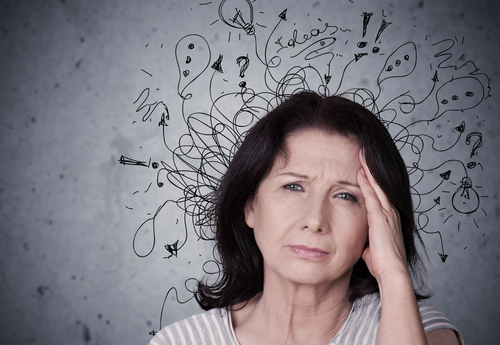Anxiety is an umbrella term with many different subsections. Anxiety is the body’s natural response to stress. The American Psychiatric Association (APA) explains that, “anxiety refers to anticipation of a future concern and is more associated with muscle tension and avoidance behavior.” It is an unavoidable feeling that every human will undoubtedly experience throughout one’s life. While fleeting anxiety is unavoidable for the vast majority of humans, an individual that experiences symptoms of anxiety that interfere with his or her ability to function in his or her daily life may be struggling with an anxiety disorder. There are currently five distinct types of anxiety disorders listed in the Diagnostic and Statistical Manual of Mental Disorders, Fifth Edition (DSM-5). They include: generalized anxiety disorder (GAD), obsessive-compulsive disorder (OCD), panic disorder, post-traumatic stress disorder (PTSD) and social anxiety disorder (also known as social phobia). While there are many potential causes of anxiety, the three most commonly reported include the following:
- Exposure to ongoing stressful events: anxiety conditions could develop due to one or more stressful life events (e.g., change in living arrangements, work stress, family/ relationship problems, death or loss of a loved one, trauma, enduring verbal, sexual, physical or emotional abuse, etc.).
- Physical health problems: chronic physical illness can contribute to the development of anxiety conditions.
- Personality factors: research suggests that people with certain personality traits are more likely to have anxiety.
It is important to note that anxiety is typically not caused by any single factor, but rather a combination of things. Further, the exact scientific cause for developing an anxiety disorder remains unknown. Research has shown that it is likely due to a combination of contributing factors such as psychological, environmental, genetic, and developmental factors. If left untreated, an individual struggling with an anxiety disorder is at increased risk for developing a plethora of adverse short and long-term effects.
Treatment
There are many treatment options available in Southern California for an individual diagnosed with an anxiety disorder. The two main treatments for anxiety disorders include psychotherapy and medication, and they are not mutually exclusive. An individual that suffers from debilitating anxiety will benefit most from a customized treatment plan. The main types of psychotherapy that are commonly used to treat anxiety disorders include cognitive behavioral therapy (CBT), dialectical behavior therapy (DBT), expressive arts therapy, and talk therapy. CBT is a type of therapy that combines behavioral therapy with talk therapy. DBT is a form of CBT that places greater emphasis on the psychosocial aspect of treatment. DBT primarily uses mindfulness-based principles to help an individual learn tools and techniques to work towards achieving his or her therapeutic goals through understanding one’s emotions and subsequent behaviors related to his or her emotions. There are several different types of medications that can also be used to treat an anxiety disorder (e.g., antidepressants, azapirones, benzodiazepines, anti-convulsant/ antipsychotic medications, etc.). In most cases integrating a combination of both psychotherapy and medication into one’s treatment plan yields the most successful, long-term results.
Disclaimer:
The information above is provided for the use of informational purposes only. The above content is not to be substituted for professional advice, diagnosis, or treatment, as in no way is it intended as an attempt to practice medicine, give specific medical advice, including, without limitation, advice concerning the topic of mental health. As such, please do not use any material provided above as a means to disregard professional advice or delay seeking treatment.


